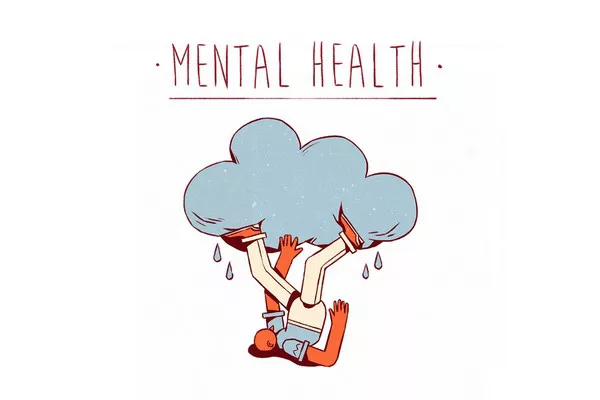Impulsive behavior, characterized by acting without forethought, often leads to actions with potentially negative consequences. While occasional impulsivity is a normal part of human behavior, excessive impulsivity can be indicative of underlying mental health conditions. Understanding the mental illnesses associated with impulsive behavior is crucial for effective diagnosis, treatment, and management. In this article, we will delve into the various mental illnesses that can cause impulsive behavior, shedding light on their symptoms, causes, and treatment options.
Impulsive Behavior:
Impulsive behavior encompasses a wide range of actions that are performed without careful consideration of the consequences. These actions may include reckless driving, substance abuse, binge eating, overspending, and engaging in risky sexual behaviors, among others. While impulsivity can sometimes be adaptive in certain situations, such as emergencies or opportunities for quick decision-making, chronic impulsivity can have detrimental effects on an individual’s life and well-being.
7 Mental Illnesses Associated with Impulsive Behavior:
1. Attention-Deficit/Hyperactivity Disorder (ADHD):
ADHD is a neurodevelopmental disorder characterized by symptoms of inattention, hyperactivity, and impulsivity. Individuals with ADHD often struggle with maintaining focus, regulating their impulses, and controlling their behavior. Impulsivity is a hallmark feature of ADHD, leading to impulsive actions and decisions without considering the consequences. Treatment for ADHD typically involves a combination of medication, behavioral therapy, and lifestyle modifications to manage symptoms effectively.
2. Borderline Personality Disorder (BPD):
Borderline Personality Disorder is a mental illness characterized by unstable mood, self-image, and interpersonal relationships. Impulsivity is a core feature of BPD, manifesting in impulsive behaviors such as reckless spending, substance abuse, self-harm, and risky sexual behavior. Individuals with BPD may engage in impulsive acts as a way to cope with intense emotions or to alleviate feelings of emptiness and boredom. Treatment for BPD often involves dialectical behavior therapy (DBT), cognitive-behavioral therapy (CBT), and medication to address symptoms and improve coping skills.
3. Bipolar Disorder:
Bipolar Disorder is a mood disorder characterized by fluctuations between periods of mania (elevated mood) and depression (low mood). During manic episodes, individuals may experience heightened impulsivity, grandiosity, and a decreased need for sleep. Impulsive behaviors commonly associated with bipolar disorder include excessive spending, risky sexual behavior, substance abuse, and impulsive decision-making. Treatment for bipolar disorder typically involves mood-stabilizing medications, psychotherapy, and lifestyle interventions to manage symptoms and prevent mood episodes.
4. Antisocial Personality Disorder (ASPD):
Antisocial Personality Disorder is a personality disorder characterized by a pervasive pattern of disregard for and violation of the rights of others. Individuals with ASPD often exhibit impulsive behaviors such as aggression, substance abuse, reckless driving, and criminal activity. Impulsivity in ASPD may stem from a lack of empathy, shallow emotions, and a failure to consider the long-term consequences of one’s actions. Treatment for ASPD is challenging and often focuses on managing associated symptoms and behaviors through therapy and behavioral interventions.
5. Substance Use Disorders (SUDs):
Substance Use Disorders involve the recurrent use of drugs or alcohol despite negative consequences. Impulsivity plays a significant role in the development and maintenance of SUDs, as individuals may engage in impulsive behaviors to obtain and use substances, even in the face of adverse outcomes. Impulsive behaviors associated with SUDs include drug-seeking behavior, binge drinking, risky sexual behavior, and impaired decision-making. Treatment for SUDs typically involves a combination of detoxification, rehabilitation, therapy, and support groups to address both the addiction and underlying impulsivity.
6. Obsessive-Compulsive Disorder (OCD):
While obsessive-compulsive disorder is primarily characterized by obsessions (intrusive thoughts) and compulsions (repetitive behaviors), some individuals with OCD may also experience impulsive behaviors. Impulsive actions in OCD may manifest as compulsive hoarding, compulsive buying, or impulsive rituals performed to alleviate anxiety or distress. Treatment for OCD often involves a combination of medication, cognitive-behavioral therapy (CBT), and exposure and response prevention (ERP) therapy to manage symptoms and improve quality of life.
7. Intermittent Explosive Disorder (IED):
Intermittent Explosive Disorder is a mental illness characterized by recurrent episodes of impulsive aggression, verbal or physical, that are disproportionate to the provocation or stressors. Individuals with IED may experience intense feelings of anger, irritability, and impulsivity, leading to explosive outbursts that result in property damage, physical injury, or legal problems. Treatment for IED typically involves a combination of psychotherapy, anger management techniques, and medication to address underlying symptoms and reduce the frequency and severity of aggressive episodes.
See Also: 6 Common Mental Illnesses Associated with Self-Hatred
Conclusion:
Impulsive behavior is a complex phenomenon influenced by a variety of factors, including genetics, environment, and mental health. While occasional impulsivity is a normal part of human behavior, excessive impulsivity can be indicative of underlying mental health conditions such as ADHD, BPD, bipolar disorder, ASPD, SUDs, OCD, and IED. Understanding the mental illnesses associated with impulsive behavior is essential for accurate diagnosis, treatment, and management. By addressing the underlying causes and providing appropriate interventions, individuals can learn to manage impulsivity effectively and improve their overall quality of life.


